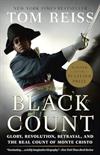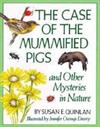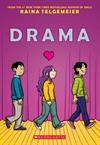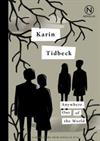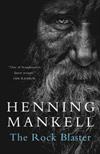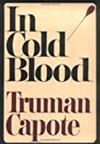
The Château
Registered by  ETMadrid
ETMadrid of Rotherhithe, Greater London United Kingdom on 5/4/2009
of Rotherhithe, Greater London United Kingdom on 5/4/2009
 This Book is Currently in the Wild!
This Book is Currently in the Wild!
 ETMadrid
ETMadrid of Rotherhithe, Greater London United Kingdom on 5/4/2009
of Rotherhithe, Greater London United Kingdom on 5/4/2009 This Book is Currently in the Wild!
This Book is Currently in the Wild!
1 journaler for this copy...
My Mum's donated this to bookcrossing and we're giving it to a friend to take on a new adventure.
CONTROLLED RELEASE NOTES:
Given to our friend.
Given to our friend.
We didn't let this one get very far before calling it back! It would appear that "The Château" in question is Beaumesnil, just down the road from a part of France we know very well, so perhaps we should read it.
Journal Entry 4 by  ETMadrid
ETMadrid at -- Somewhere in London 🤷♀️ , Greater London United Kingdom on Wednesday, October 12, 2016
at -- Somewhere in London 🤷♀️ , Greater London United Kingdom on Wednesday, October 12, 2016
 ETMadrid
ETMadrid at -- Somewhere in London 🤷♀️ , Greater London United Kingdom on Wednesday, October 12, 2016
at -- Somewhere in London 🤷♀️ , Greater London United Kingdom on Wednesday, October 12, 2016
Well I started this in August but reading time is not long at the moment for me and I have only just finished it... What a strange book! Truly disappointed when 50 pages in I realised that the chateau in question is not the Beaumesnil that I and my family know. In fact I wonder whether the adoption of a name of a chateau actually in Normandy for this one in the Loire is the only fictionalised part of the whole book... Slightly puzzling and I can find no trace of an explanation anywhere. What this book is good for is portraying the early post-WWII life in Paris and outside Paris. But there are so many rather deadly boring details that it drags on and on. It is extremely realistic: an American couple who come to learn the language and discover the culture and find it challenging in more ways than one. The treatment they receive makes them understandably paranoid and makes for some rather uncomfortable reading. 300 pages in things hotted up when a burst pipe occurred and somehow the book managed to hold my attention much more... There was some rather odd philosophising going on at times and the style is certainly original. I go on to my next book with some relief and mixed feelings about this!
Journal Entry 5 by  ETMadrid
ETMadrid at -- Somewhere in London 🤷♀️ , Greater London United Kingdom on Wednesday, October 12, 2016
at -- Somewhere in London 🤷♀️ , Greater London United Kingdom on Wednesday, October 12, 2016
 ETMadrid
ETMadrid at -- Somewhere in London 🤷♀️ , Greater London United Kingdom on Wednesday, October 12, 2016
at -- Somewhere in London 🤷♀️ , Greater London United Kingdom on Wednesday, October 12, 2016
Still searching for an explanation of the chateau's name, I just came across this admirably written and more appreciative review of the book on Goodreads. Think it worth copying and pasting here for the benefit of future readers!
"This is a rare gem of a book. It is so perfect in its depiction of traveling and falling in love with another country that, not only would I not change a word, I found section after section I wanted to absorb into my skin. Although written sixty years ago and set just after World War II, the interactions and reactions of a young American couple with the French and in France remain relevant, painful, hilarious, and true.
Its peaceful pace belies the profound transformation of its principal characters, Harold and Barbara, and of the painful recent history from which the French were so eager to shake loose in the fragile years of the late 1940’s. It is counter to French nature to turn away from history and move on with assertive hope; Barbara and Harold arrive at the border just as France accepts that breaking the habit of reflection and debate and marching in concert with their European neighbors- including Germany- is the only way out of the post-war depression.
Whether or not it was the writer's intention, Maxwell’s characters personify specific national characteristics or conditions that were present in France during this tender and uncertain time.
Mme Viénot is the face of dignity. She endeavors to preserve the gentility of the rapidly disappearing class of landed gentry. Hers is the eponymous château, which suffers the indignities of no hot water, no heat, and a larder limited by ration coupons. She is wily, a survivor, one foot trailing in the France’s past, the rest of her thrust forward, ready to grasp what she can to keep her home and legacy intact.
Eugène Boisgaillard encapsulates a nation emasculated by war, and its co-conspirators helplessness, guilt, and frustration. He runs hot and cold- a character you don’t trust and but somehow you come to understand. He is surely suffering some sort of post-traumatic stress disorder, a condition not spoken of in a nation that had lost so many of its young men to war. He resents the vitality and hope of the American naïfs as he comes to terms with the loss of his gracious pre-war lifestyle.
Mme Straus-Muguet is a reminder that all is not as good as it seems in the land of your dreams. Pulling back the curtain of Emerald City to see an insignificant blunderbuss at the controls is a keen disappointment. But once you accept the flaws and the ordinariness of it all, you also begin to feel more at home.
Her awkward social status is also a painful but unspoken reminder that, although united during the war by hunger, fear, resistance, or mere survival, the different social classes would sort themselves out in peacetime. Peace means never having to say “I’m sorry,” to someone beneath your standing.
Sabine and Alix are the face of the new France: young, strong, independent women. Sabine is blazing her career path without the help of her connected family or a paramour; Alix is a busy mother in a passionate but difficult marriage with the mercurial Eugène. These women realize there is no time to stop and reflect on all that was lost in two generations of war; their lives are rich and full, the demands on their intelligence and heart too great to tarry.
It often feels that Harold and Barbara are more conduits than characters, particularly the winsome and vague Barbara. Harold works so hard to understand and to be understood, to fit in, get along, adapt; he wants desperately to be French, but understands that he is the quintessential American. The passages showing Harold falling helplessly in love with France, encountering the inexplicable and the maddening, and finally, saying goodbye to Paris are heart-wrenching to any one who has known and loved that beautiful, proud, contrary, gracious country.
The Château is a love letter to France, and an homage to the baffling, intoxicating experience of traveling abroad. It is also an astute portrayal of post World War II Europe, of a country that was on the losing side of the victorious. "
"This is a rare gem of a book. It is so perfect in its depiction of traveling and falling in love with another country that, not only would I not change a word, I found section after section I wanted to absorb into my skin. Although written sixty years ago and set just after World War II, the interactions and reactions of a young American couple with the French and in France remain relevant, painful, hilarious, and true.
Its peaceful pace belies the profound transformation of its principal characters, Harold and Barbara, and of the painful recent history from which the French were so eager to shake loose in the fragile years of the late 1940’s. It is counter to French nature to turn away from history and move on with assertive hope; Barbara and Harold arrive at the border just as France accepts that breaking the habit of reflection and debate and marching in concert with their European neighbors- including Germany- is the only way out of the post-war depression.
Whether or not it was the writer's intention, Maxwell’s characters personify specific national characteristics or conditions that were present in France during this tender and uncertain time.
Mme Viénot is the face of dignity. She endeavors to preserve the gentility of the rapidly disappearing class of landed gentry. Hers is the eponymous château, which suffers the indignities of no hot water, no heat, and a larder limited by ration coupons. She is wily, a survivor, one foot trailing in the France’s past, the rest of her thrust forward, ready to grasp what she can to keep her home and legacy intact.
Eugène Boisgaillard encapsulates a nation emasculated by war, and its co-conspirators helplessness, guilt, and frustration. He runs hot and cold- a character you don’t trust and but somehow you come to understand. He is surely suffering some sort of post-traumatic stress disorder, a condition not spoken of in a nation that had lost so many of its young men to war. He resents the vitality and hope of the American naïfs as he comes to terms with the loss of his gracious pre-war lifestyle.
Mme Straus-Muguet is a reminder that all is not as good as it seems in the land of your dreams. Pulling back the curtain of Emerald City to see an insignificant blunderbuss at the controls is a keen disappointment. But once you accept the flaws and the ordinariness of it all, you also begin to feel more at home.
Her awkward social status is also a painful but unspoken reminder that, although united during the war by hunger, fear, resistance, or mere survival, the different social classes would sort themselves out in peacetime. Peace means never having to say “I’m sorry,” to someone beneath your standing.
Sabine and Alix are the face of the new France: young, strong, independent women. Sabine is blazing her career path without the help of her connected family or a paramour; Alix is a busy mother in a passionate but difficult marriage with the mercurial Eugène. These women realize there is no time to stop and reflect on all that was lost in two generations of war; their lives are rich and full, the demands on their intelligence and heart too great to tarry.
It often feels that Harold and Barbara are more conduits than characters, particularly the winsome and vague Barbara. Harold works so hard to understand and to be understood, to fit in, get along, adapt; he wants desperately to be French, but understands that he is the quintessential American. The passages showing Harold falling helplessly in love with France, encountering the inexplicable and the maddening, and finally, saying goodbye to Paris are heart-wrenching to any one who has known and loved that beautiful, proud, contrary, gracious country.
The Château is a love letter to France, and an homage to the baffling, intoxicating experience of traveling abroad. It is also an astute portrayal of post World War II Europe, of a country that was on the losing side of the victorious. "
Journal Entry 6 by  ETMadrid
ETMadrid at -- Somewhere in London 🤷♀️ , Greater London United Kingdom on Wednesday, October 19, 2016
at -- Somewhere in London 🤷♀️ , Greater London United Kingdom on Wednesday, October 19, 2016
 ETMadrid
ETMadrid at -- Somewhere in London 🤷♀️ , Greater London United Kingdom on Wednesday, October 19, 2016
at -- Somewhere in London 🤷♀️ , Greater London United Kingdom on Wednesday, October 19, 2016
Released 7 yrs ago (10/18/2016 UTC) at -- Somewhere in London 🤷♀️ , Greater London United Kingdom
CONTROLLED RELEASE NOTES:
I passed this on to someone who has lived in both the US and France, so might find this interesting...
This has come back to me, not really enjoyed by its reader, who said she thought it was annoying that any English-speaking couple could think they could improve their French whilst doing everything together.
Journal Entry 8 by  ETMadrid
ETMadrid at At Port Eliot Festival in St. Germans, Cornwall United Kingdom on Monday, July 31, 2017
at At Port Eliot Festival in St. Germans, Cornwall United Kingdom on Monday, July 31, 2017
 ETMadrid
ETMadrid at At Port Eliot Festival in St. Germans, Cornwall United Kingdom on Monday, July 31, 2017
at At Port Eliot Festival in St. Germans, Cornwall United Kingdom on Monday, July 31, 2017
Released 6 yrs ago (7/28/2017 UTC) at At Port Eliot Festival in St. Germans, Cornwall United Kingdom
WILD RELEASE NOTES:
I left this hanging on a tree in the walled garden on the way to the Wardrobe Department. It's not there any more!
